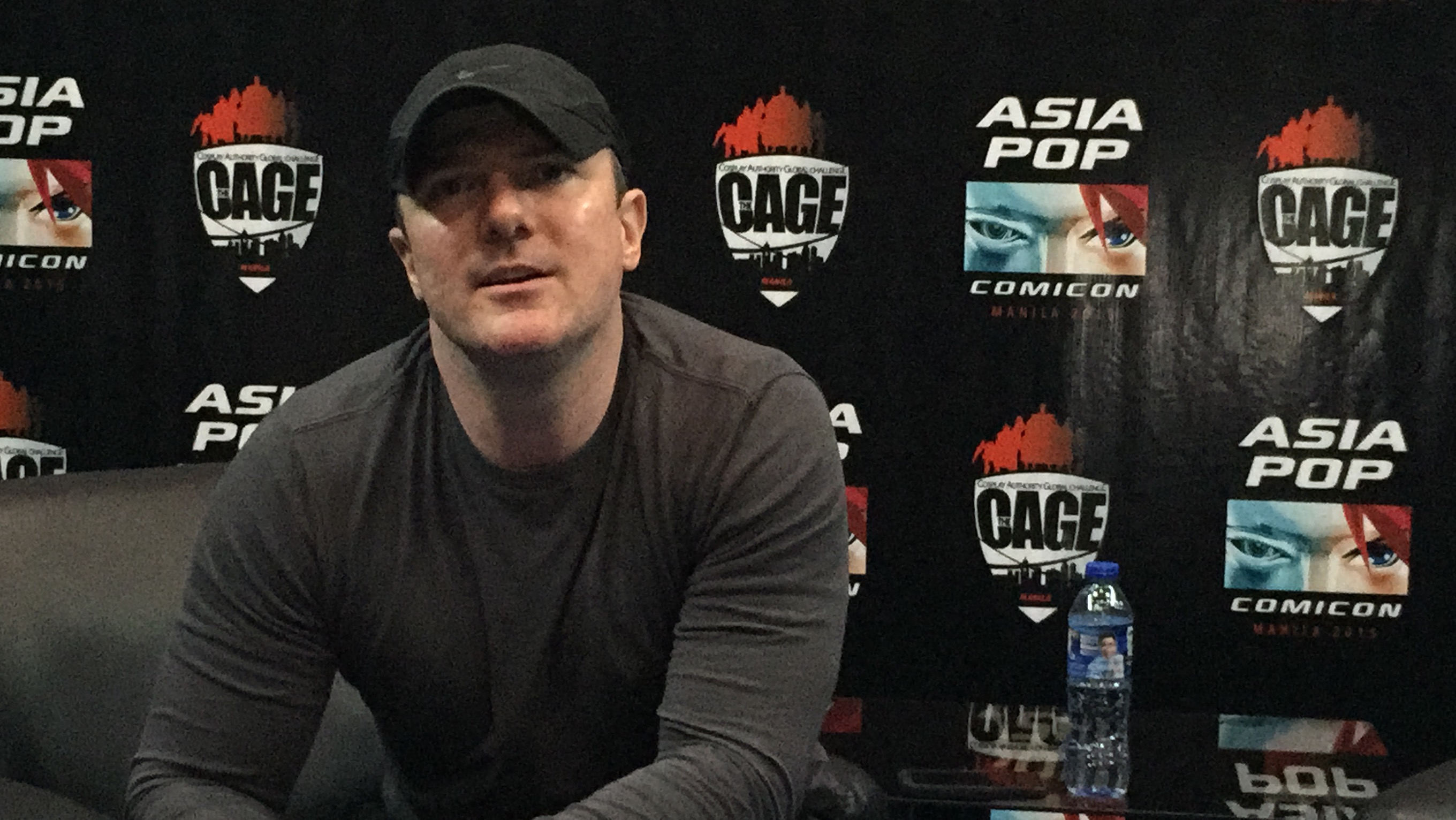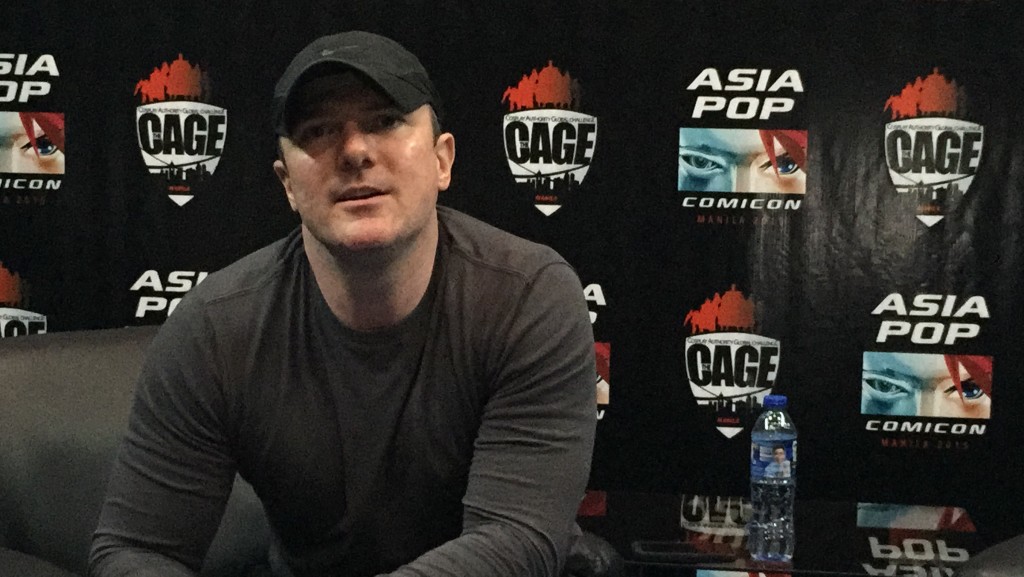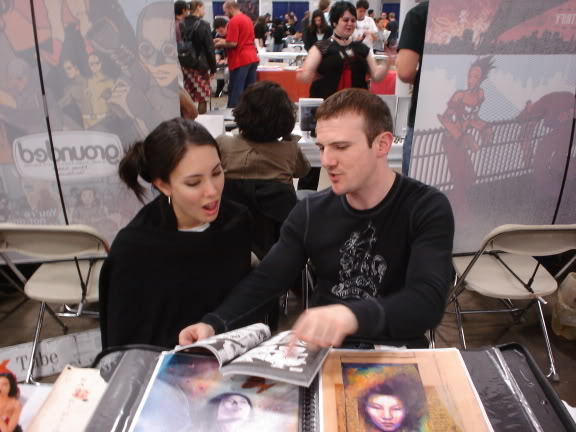by AJT Santos
We sat down with American comic book creator David Mack in a roundtable interview at the recently-concluded AsiaPOP Comicon Manila where he talked about his views on the future of the comic book medium, Chuck Pahlaniuk’s writing style on Fight Club, and why he considers comics the rock and roll of literature. Here it is, in the words of the man himself.
On what it was like working in a small press
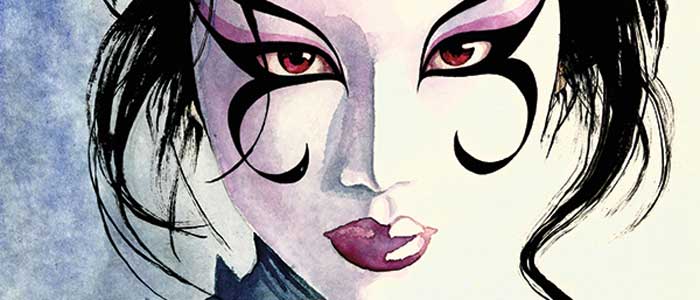
It was a really exciting time. Before Kabuki I did some smaller projects for Caliber. This was maybe 1992; no cellphones, no internet. I was a very young college student. I just found publishers’ addresses in books at comic stores and sent things through the mail to them. I called up the publisher of Caliber, “Yeah I sent a package in the mail. Did you get it?” They were like, “No we never got it. What was it?” then I described it and they said, “Well that’s interesting, send it again.” So I sent it again and it did really well for them. I said, “Well if that did well for you I’m working on this other project, Kabuki. Are you interested in that?” They said, “Yeah we’ll do that too.”
So I made this little mockup, this ashcan comics at the Kinko’s copy center and sent those to them. It was very exciting because it was a creator-owned company that was a very small publisher and they gave you complete freedom to do what you wanted to do.
On his first comic convention experience
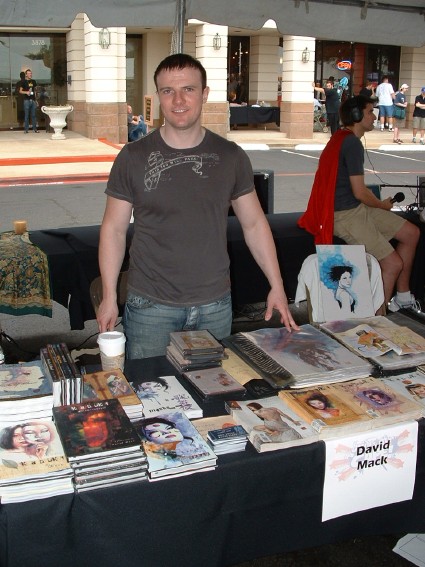
Caliber said they were going to do a New York convention in January of ‘93 and they said, “Well do you want to come sign with us? Your first book will be out in the show.” I was in college at the time and I had a friend who was traveling to New York and I said, “Hey is there any chance I could go to New York with you?” I had 20 dollars in my pocket and just jumped in the back of the car and went to New York. I met the publisher for the first time and all these other creators who were people I had heard about or read their books. It was pretty amazing to be right next to them, like a table and meeting them, and then selling books and doing drawings for people.
On meeting Brian Michael Bendis
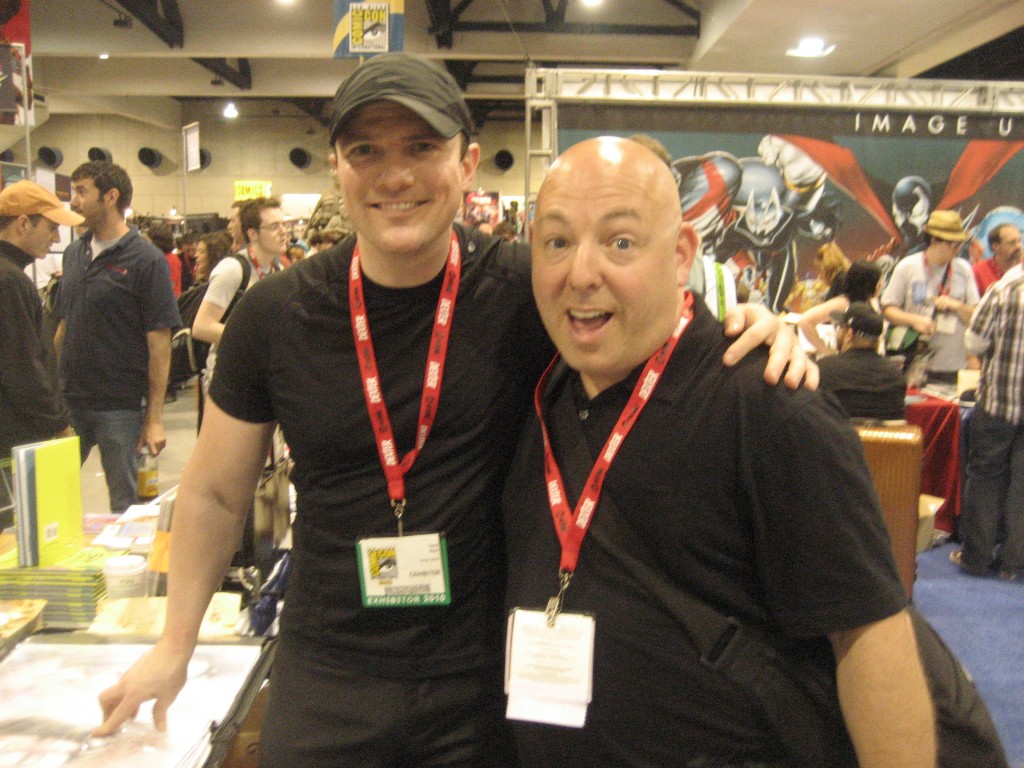
There was another convention the same year in Chicago. I went to that also and signed at Caliber’s table and that’s where I met Brian Bendis. We were right next to each other and Brian really liked my stuff. He was about 5 or 6 years older than me and, at the time, he was trying to make a living as a penciler but he had creator-owned projects too. He showed me one of his projects and I took my Sharpie and started inking on it. He said, “Oh that’s much better,” and he immediately got me a job as his inker on another project at the convention. We started working together immediately.
It was an exciting time; figuring stuff out, you know? Meeting other interesting creators that you get to work with.
On creator-owned comics versus mainstream publishers
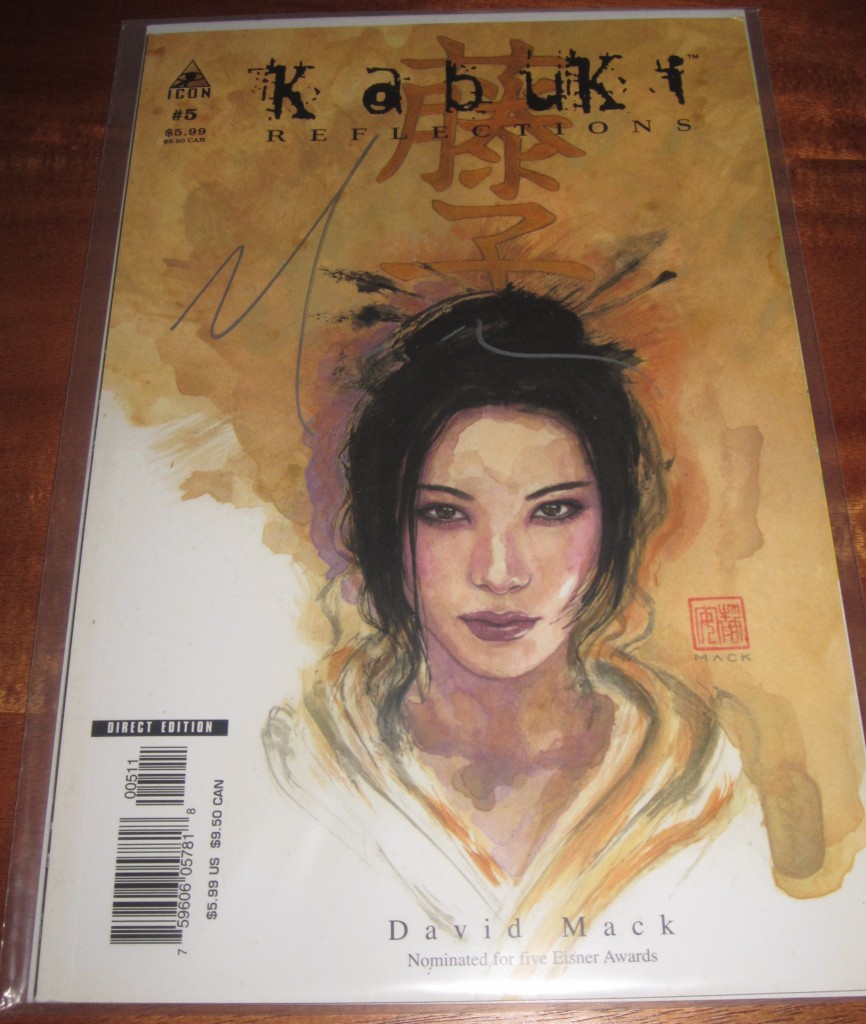
I might be oblivious to the fan perspective on it but what I would say in terms of creators is very simple. It’s just: do whatever makes you happy. For some people, they dreamt of working on characters they grew up with and that’s what makes them really happy. For others, they’re very motivated to work on things that they created completely. So there’s room to do either one of those things or both those things.
On meeting Joe Quesada and doing work for Marvel
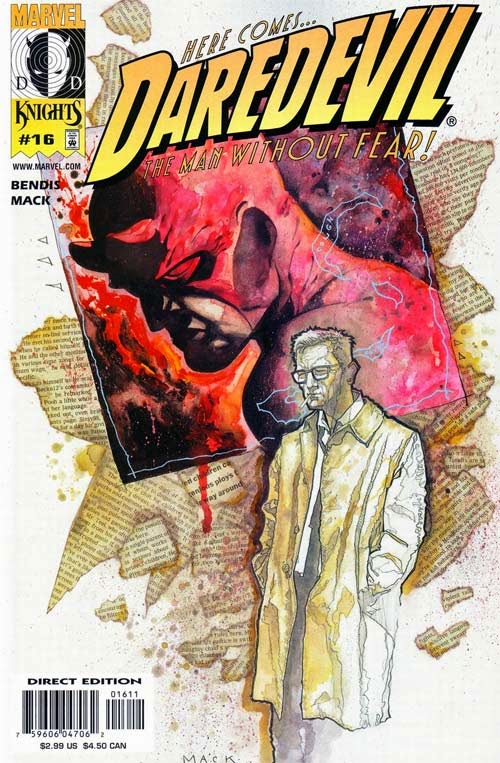
My goal really wasn’t to work for Marvel or another company or do other characters. My goal was to do creator-owned comics. I was pretty young when I started Kabuki and I really enjoyed that. I was at a convention in 1995 and I gave Joe Quesada my first Kabuki volume. This was long before he was at Marvel. He called me up and said, “I really like your writing in this story and I’d like to work with you as a writer and I’d do the art on a project someday.”
A few years later I got a call from him. He said, “I’m gonna take over about four books in Marvel.” That’s what became Marvel Knights. He said, “What if you choose a Marvel character and you write it and draw it?” which was an amazing offer to get over the phone out of the blue.
From both Bendis and I, both our experiences, we got all our offers to do other books based on our creator-owned things. So I kind of look at creator-owned things as kind of a maze of things and then you get offers to work on other characters. But mostly one of the great things about it is that you collaborate with other creators.
On why comics are the rock and roll of literature
To start with, rock and roll is like this odd hybrid medium. It’s not just one thing. It’s blues and it’s rockabilly mixed with gospel mixed with jazz. It’s always vibrant when it’s reaching outside of itself, incorporating something new, and adding that into its lexicon. I felt like comics are a very similar thing. They’re not just literature. Anytime they’re sort of absorbing new and different attitudes, it always brings new life into it and shows how fertile the medium is. It’s still comics but it shows you how big and malleable and flexible and limber the medium is with all the different things it can do.
When rock and roll came out, it was in the underground but by the time it reaches the commercial state, it becomes co-opted by something else but there’s already something interesting and new happening in the next sub-culture. I feel comics are like that too. In general, rock and roll didn’t get the respect that classical music would get, the same way comics might not get the same respect some people would give to the idea of children’s books as an art form, or prose books as an art form, or poetry as an art form. But it’s still so exciting. There’s always people fascinated with it. Eventually, like in rock and roll, the mainstream embraces it.
On the evolution of comic books as an art form
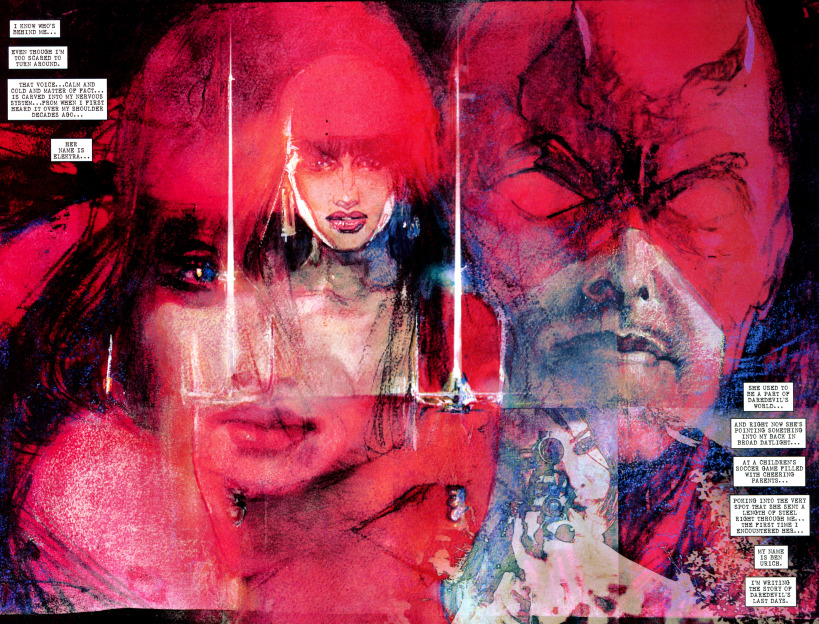
There’s so many ports of entry for comics. There’s so many ways that different people can access them now, in terms of the digital medium, in terms of the hardcover collections, in terms of buying it at the bookstore, buying at the comic book store, people making web comics, people making ashcans and selling them at comic book conventions. There’s so many ways people can reach them and there’s so many ways people do comics that are still comics.
On mainstream adoption of the medium
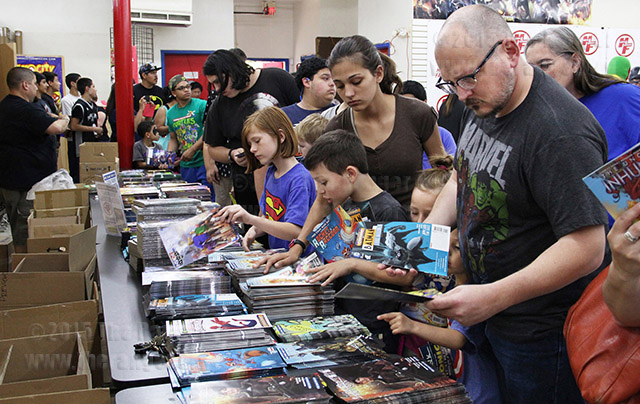
I think there’s all these odd little things that can be happening with it but you never know which the mainstream is going to embrace more. Right now the mainstream is embracing the movie and TV adaptation of a lot of comic stuff and that becomes a lot of people’s port of entry to find comics.
Hopefully that brings them into a bookstore or a comic book store, check out the other stuff, and then find the more experimental things that are happening. It’s unpredictable which will be the next big thing. The wonderful and fascinating thing about it is that there’s so much you can do with it.
On being original
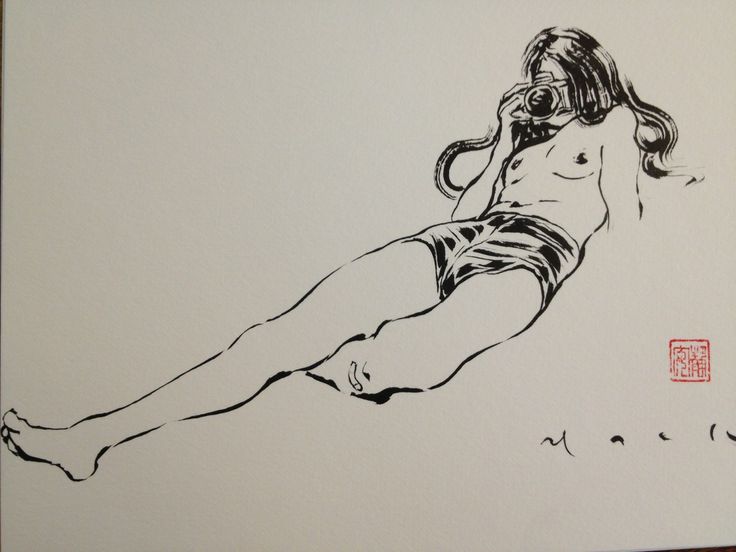
As a creator, when you’re making a book, you want to think, “What’s the most amazing book I could possibly imagine that doesn’t exist? Here’s all these things that exist that I already like. What do I really like to see that doesn’t exist?” and then make that. Make it any way you need to. Right now there’s so many different ways to make that happen and often the character in the story themselves suggest to you the best way for that to happen. Usually it’s when you’re in the midst of creating something that the project reveals to you how it wants to be made. So sometimes you start with one idea and halfway through you go, “This is the way it should be instead.” You have to dance with that and listen to it.
On titles he would recommend to readers
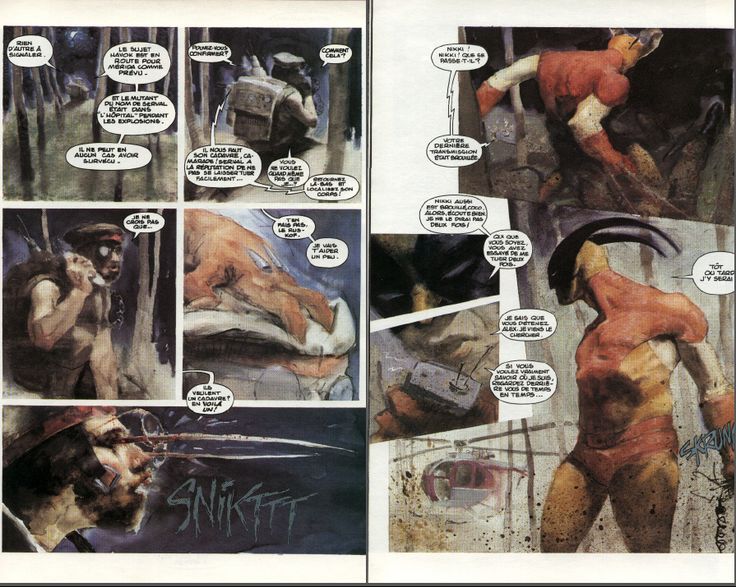
I usually follow creators instead of characters or titles. The time when Kabuki was coming out, it was a really interesting time for creator-owned books and stuff. Paul Pope was doing a lot of stuff in those days and I still like Paul Pope’s stuff. I like Michael Oeming’s stuff. He was doing a lot of interesting things then and still doing a lot of interesting things now. I still like the work of Kent Williams. He did a book called “Blood” with JM Dematteis and “Havok and Wolverine: Meltdown.” He’s a really close friend of mine. He sort of focused on fine art stuff but he has a lot of graphic novels that he’s working on and it’s really amazing. I often like a lot of these guys that are working in one medium and then applying that sensibility into comics and bringing something unique from that point of view.
On Chuck Pahlaniuk’s Fight Club comic book
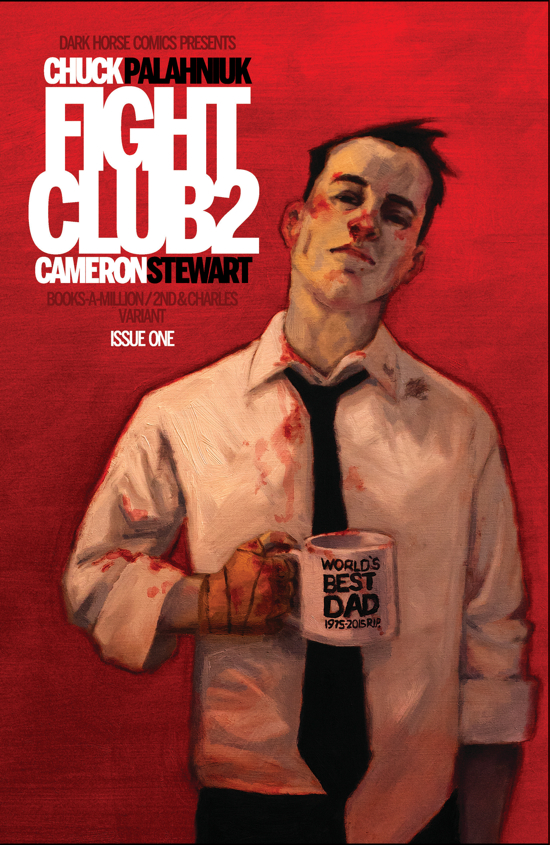
I like people who are doing very interesting things. I’m really impressed with Chuck Pahlaniuk’s work as a writer on Fight Club. For a guy who’s never written a comic book story ever before, it’s like the most elegant script that I’ve ever read. It was a really unique approach to it. He wrote his whole script catering to his strengths and avoiding anything he would be weak at. He knew he was already working with other artists who were going to bring it to life so he would give them a certain amount of room to play with.
The way he wrote his script, he wrote only panels. He didn’t break it into pages. So the first script will be like Panel 1 through Panel 275 and he leaves it to the artist to break it into the page because they know what they’re doing. It makes it such an elegant… it’s like reading a play or like a screenplay for film. It reads really well and it kind of paints a picture. Everything you need to know is in the script. And he doesn’t even need to do all that. It kind of just shows you there’s no right or wrong way to do it. Even if it was so odd, it was really the most easily-readable comic book script I have ever read.
On writing villains
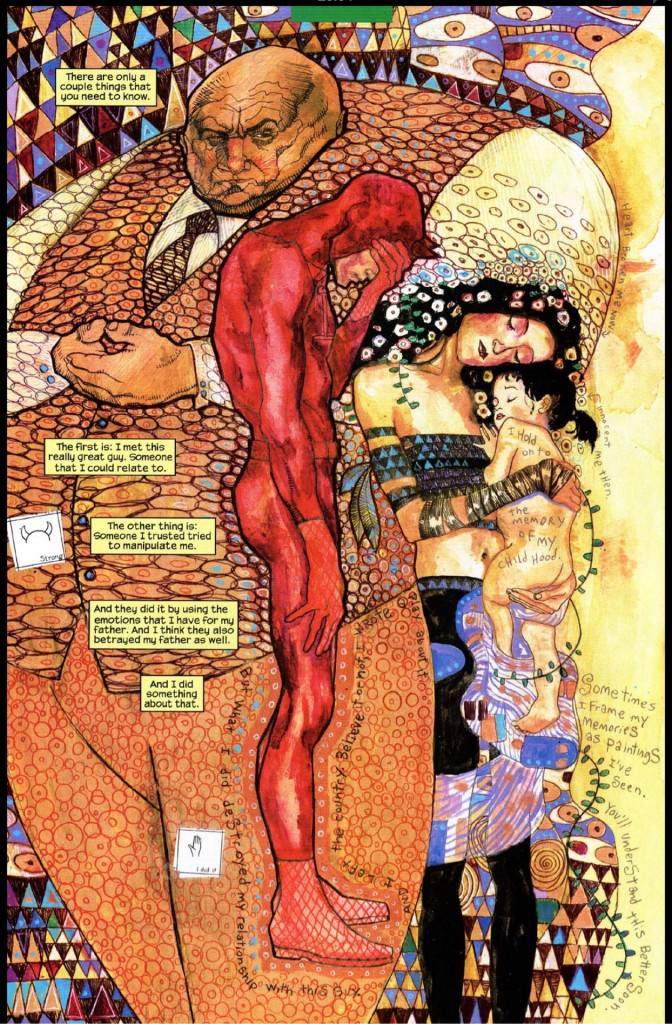
My first work for Marvel was the Daredevil “Parts Of A Hole” story where I created (the character) Echo. But my favorite part of the story was the origin of Wilson Fisk becoming the Kingpin. It was the story I related to the most, the Kingpin aspect of it, like his childhood and how he became who he was. Most villains don’t think of themselves as villains like most people don’t think they’re bad people. They’re doing things for certain reasons that motivate them whether it’s internal motivation or external motivation. Most characters think they’re motivated by one thing but they’re most often unconsciously motivated by something else.
So with the “Parts Of A Hole” story I do that with Daredevil and Kingpin and Echo. What they’re doing now as an adult is precipitated by a traumatic experience they’ve had in their formative years as a child and I find this is the same way in real life too. What happens is, often, they’ll have a traumatic experience as a child and then the rest of their adult life they’ll try to reenact that experience in a way that they’re in control of it because they were not in control when it happened.
I know a lot of actual people who would do the same thing. They would stay stuck in the same cycle of doing that over and over unless you can get out of it.
On Daredevil and characterization

I was fascinated with the Daredevil TV show. That was my favorite part of the TV show, the villain part. That origin of Wilson Fisk and The Kingpin. There were a lot of little nods in his origin in the TV show to some of the stuff I have done.
I start it like that. I don’t start with thinking one person’s bad or that one person was good, one person’s a hero, one person’s a villain. I usually start thinking like, “This happened to them and how would they react to that.”
In Daredevil’s case, his origin story, he could easily be a villain. As a kid he pushed this guy out of the way but he got hit instead. Like he could take that the wrong way and feel like society owes him something. It’s interesting. Often it’s because of the character’s parents. What standard they set for them in terms of how they react: as a villain or as a hero? But all of them are just trying to make sense of the world the best they can.

